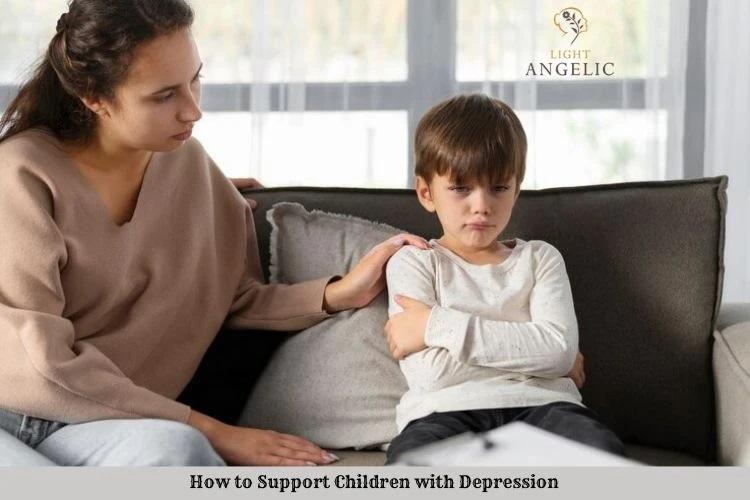In an era defined by rapid technological advancements and an ever-evolving global landscape, cultivating a growth mindset in children has emerged as a pivotal component of educational and personal development strategies. This analytical exploration delves into the significance of nurturing a growth-oriented perspective in young minds, highlighting its potential to transform challenges into opportunities for learning and growth. Grounded in psychological research and educational theory, the concept of a growth mindset—pioneered by psychologist Carol Dweck—posits that abilities and intelligence can be developed through dedication and hard work. As children navigate the complexities of modern life, equipping them with a mindset that embraces effort, resilience, and adaptability is not merely beneficial; it is essential. This article examines the multifaceted benefits of fostering a growth mindset, from enhancing academic performance to bolstering emotional resilience, and underscores its role as a foundational pillar in preparing children to thrive in an uncertain future.
Understanding the Core Principles of a Growth Mindset
At the heart of nurturing a growth mindset lies the understanding that intelligence and abilities are not static traits, but can be cultivated through effort, strategic thinking, and learning from failure. This mindset is anchored in several core principles that, when embraced, empower children to navigate challenges with resilience and optimism. One of the primary principles is the belief in the malleability of intelligence, which encourages children to view challenges as opportunities for development rather than insurmountable obstacles. By adopting this perspective, children are more likely to embrace challenges, persist in the face of setbacks, and see effort as a pathway to mastery.
Another key principle involves the value of feedback. Constructive criticism is not a threat to their self-worth but a valuable resource for growth. Children with a growth mindset understand that feedback provides insights into their current performance and guidance on how to improve. Additionally, fostering a love for learning over a desire for approval is crucial. This can be achieved by emphasizing the process of learning rather than the end result. Encourage children to appreciate the journey of acquiring new skills and knowledge, which in turn cultivates intrinsic motivation. By instilling these principles, we equip children with the tools to thrive in an ever-evolving world.
- Belief in the malleability of intelligence
- Viewing challenges as opportunities
- Understanding the value of feedback
- Focusing on learning over approval

The Role of Parents and Educators in Nurturing Growth
Parents and educators play a pivotal role in shaping a child’s mindset. They are the architects of an environment where curiosity and resilience can flourish. By consistently encouraging children to embrace challenges and view failures as learning opportunities, adults can help cultivate a growth mindset. Positive reinforcement and constructive feedback are essential tools in this process. Rather than simply praising innate talent, acknowledging effort and perseverance instills a belief that abilities can be developed through dedication and hard work.
- Encourage curiosity by asking open-ended questions.
- Model lifelong learning by sharing personal growth experiences.
- Create a safe space for children to express their thoughts and ideas.
- Promote a culture of feedback rather than criticism.
- Celebrate both successes and the lessons learned from failures.
By fostering such an environment, parents and educators empower children to become resilient, adaptive, and enthusiastic learners. This collaborative effort not only enhances academic performance but also nurtures emotional intelligence, equipping children with the tools needed for lifelong success.
Strategies to Cultivate Resilience and Perseverance
In nurturing a growth mindset in children, it is essential to implement strategies that effectively cultivate resilience and perseverance. These strategies serve as the foundation for developing a robust mental framework that enables children to view challenges as opportunities for growth. One effective approach is to encourage self-reflection. By guiding children to reflect on their experiences, they can identify their strengths and areas for improvement, fostering a sense of self-awareness and adaptability.
- Model resilience: Demonstrate how to handle setbacks gracefully and learn from them.
- Promote problem-solving skills: Encourage children to brainstorm solutions to obstacles they encounter, enhancing their critical thinking abilities.
- Set realistic goals: Help children set achievable goals and break them down into manageable steps, reinforcing the idea that progress is possible through effort.
- Celebrate effort over outcome: Focus on the process and hard work rather than the final result, which helps children appreciate the value of persistence.
By embedding these strategies into daily routines, children learn to navigate life’s challenges with confidence and determination. As they grow, this resilient mindset becomes an invaluable asset, empowering them to face future adversities with courage and optimism.

Long-term Benefits of a Growth Mindset for Future Success
Embracing a growth mindset is not just a fleeting trend; it is a foundational approach that can yield significant long-term benefits for children’s future success. At its core, a growth mindset instills the belief that abilities and intelligence can be developed through dedication and hard work. This perspective fosters resilience, encourages continuous learning, and empowers children to tackle challenges head-on. Over time, these attributes become integral to their personal and professional lives, offering a competitive edge in an ever-evolving world.
- Resilience and Adaptability: Children with a growth mindset view setbacks as opportunities for growth rather than insurmountable obstacles. This adaptability is crucial in navigating life’s unpredictable challenges.
- Enhanced Problem-Solving Skills: By embracing challenges, children learn to approach problems creatively, seeking solutions through persistence and innovation.
- Lifelong Learning: A growth mindset encourages an intrinsic motivation to learn, making children more open to acquiring new skills and knowledge throughout their lives.
Incorporating a growth mindset from an early age not only equips children with the tools necessary for academic achievement but also lays the groundwork for success in their future careers and personal endeavors. By fostering this mindset, we prepare the next generation to thrive in a world that values adaptability, creativity, and continuous improvement.



